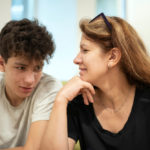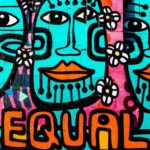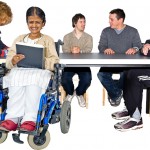
Big Society? Disabled people with learning disabilities and civil society is a project funded by the Economic and Social research council (June, 2013 – September, 2015).
The project is a collaboration between universities and organisations of and for people with learning disabilities, further details can be found at: www.bigsocietydis.wordpress.com
Here, just as the project shares its findings at a national conference, Katherine Runswick Cole sets the scene and Silvana Mengoni posts about one of the published papers from the project.
[read the full story...]








